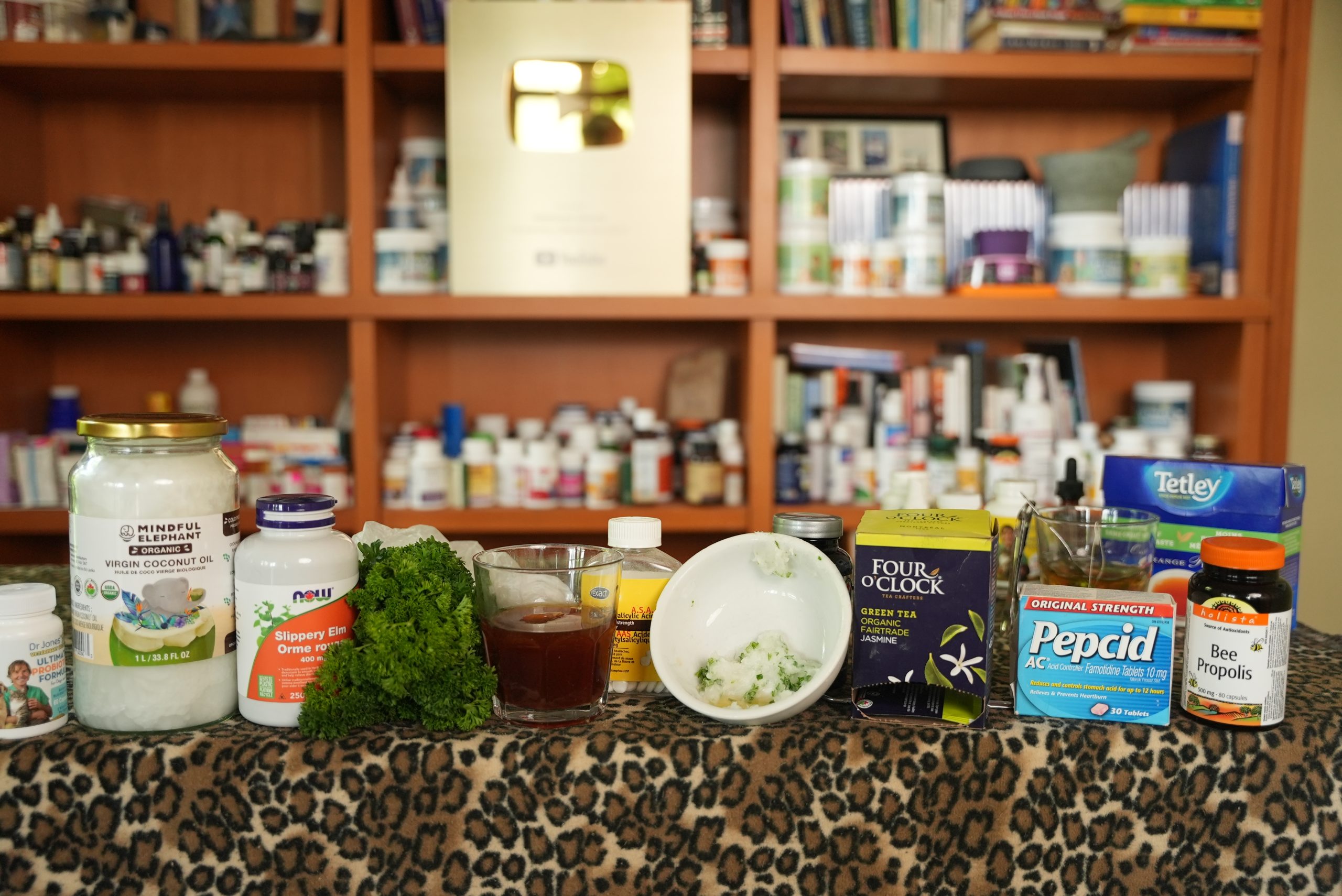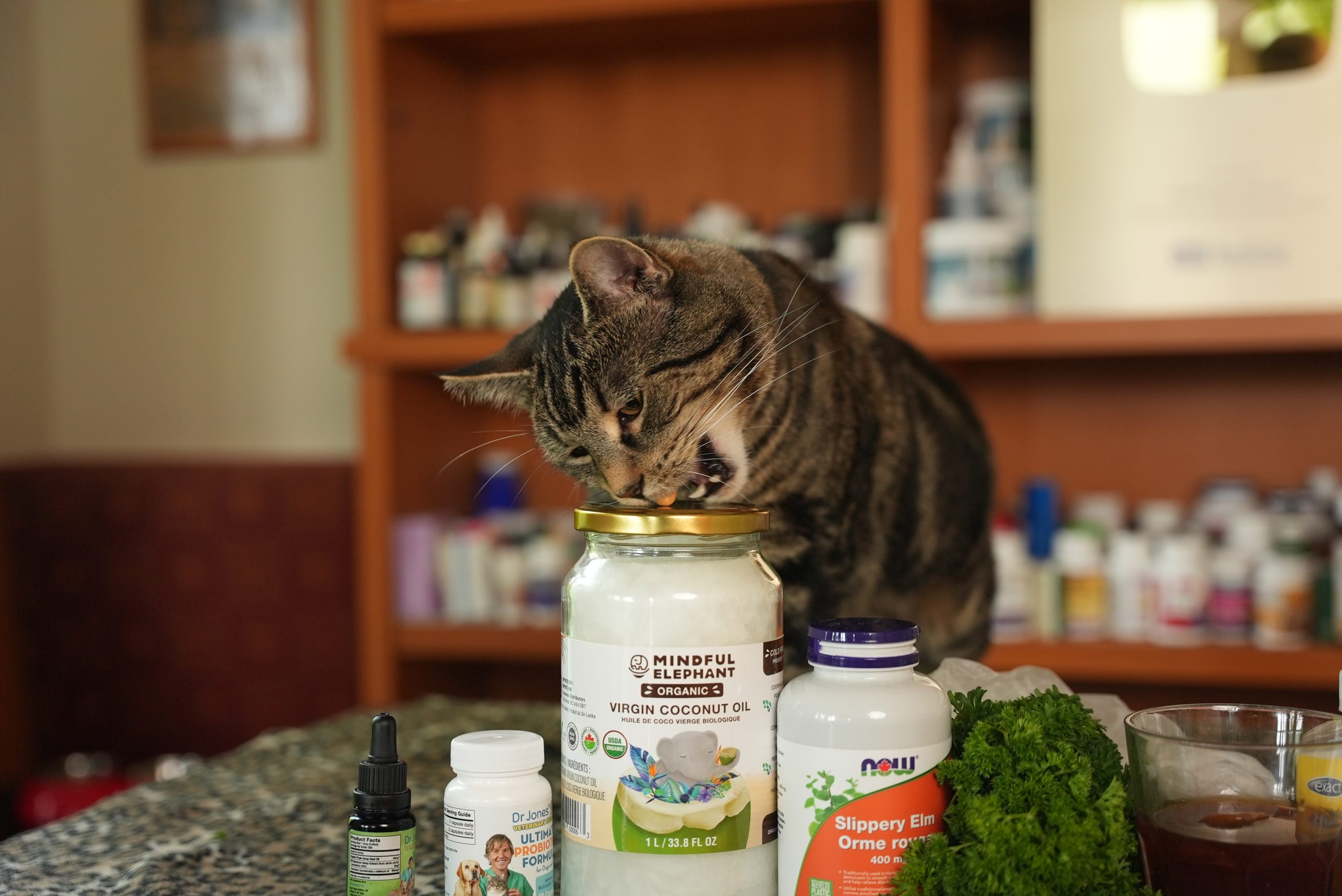Simple Home Remedies to Eliminate Bad Breath in Dogs and Cats
![]()
Stop Bad Breath in Dogs FAST! Vet-Approved Remedies You Can Do at Home!
We’ve all been there—your dog or cat has bad breath, but when you open their mouth, their teeth look perfectly fine. It’s confusing, right? Why does their breath smell so bad if their teeth are clean and healthy? In this post, we’re diving into the top causes of bad breath in pets and simple remedies you can try at home. From dental disease to digestive issues, I’ll walk you through what might be causing your pet’s stinky breath and how you can help them feel better.
Did you know that taking care of your dog’s gut health can actually improve their breath? That’s right! A healthy gut means fewer digestive issues and less bad breath.
Dr. Jones’ Ultimate Probiotic Formula for Dogs and Cats
To support your dog or cat’s gut, consider adding Dr. Jones’ Ultimate Probiotic Formula for Dogs and Cats to their daily routine. This all-natural supplement helps balance the gut microbiome, promotes healthy digestion, and can reduce unpleasant odors from the mouth.
A healthy gut equals a fresh breath, and it’s a simple way to keep your pet feeling and smelling their best. Don’t wait—give your pet the support they deserve with Dr. Jones’ Ultimate Probiotic Formula today!


Stop Bad Breath in Dogs FAST! Vet-Approved Remedies You Can Do at Home!
If your dog or cat has bad breath, you might be surprised when you open their mouth and see that their teeth look fine. No plaque, no tartar, and no obvious gingivitis. So, what’s going on? This was exactly the case with my new cat, Cassian, who’s still a young guy. His teeth looked great, but his breath didn’t match up. It got me thinking—there are a number of possible reasons your pet could have bad breath, even if their teeth look healthy.

In this guide, I’m going to walk you through the top seven causes of bad breath in dogs and cats and share my top seven home remedies to help tackle the problem at home. Let’s dive in!
1. Dental Disease: The Top Culprit
Dental disease is by far the most common cause of bad breath in pets. Take Tula, for example. When I lift her lips, I can see a fair amount of plaque on her teeth. This plaque eventually hardens into tartar, which causes inflammation and infection along the gum line, known as gingivitis—and it sure produces a strong odor. Sometimes, bad breath can even be a sign of tooth abscesses.
Remedy: If your dog or cat has bad breath, start by checking their mouth. If you notice plaque, tartar, or redness along the gums, dental disease is likely the cause. A professional cleaning may be necessary, but there are things you can do at home to slow down plaque buildup, which I’ll discuss in a moment.
2. Foreign Bodies in the Mouth
Sometimes, a foreign object can get lodged in your pet’s mouth, causing an infection and bad breath. It could even be something more serious, like a tumor. This was the case with my last dog, Lewis. He suddenly started drooling and had trouble chewing on one side. After a thorough examination, I discovered he had a dental tumor.
Remedy: If you notice your dog pawing at their face or drooling excessively, check their mouth carefully for any foreign objects. If you suspect a tumor or can’t find the source of the problem, it’s time to see your veterinarian.
3. Digestive Issues
Bad breath can also stem from digestive problems. Cassian was a perfect example of this. He had an upset stomach, and I noticed him trying to regurgitate, which led to unpleasant-smelling breath. Conditions like acid reflux or a megaesophagus can cause bad breath in both cats and dogs.
Remedy: If your pet is showing signs of digestive upset, such as regurgitation or stomach discomfort, you may be dealing with acid reflux. I’ll share a simple home remedy for this in a moment.
4. Respiratory Infections
Just like humans, pets can develop respiratory infections that cause bad breath. If your dog or cat has a cold or upper respiratory tract infection, nasal discharge can drip down into their mouth, leading to bad breath. Tula has had this issue on and off, and I can smell the odor from her nose even when it’s clear from the outside.
Remedy: If your pet has a respiratory infection, treating the infection will also help with the bad breath. A good antibacterial or antiviral treatment can go a long way.
5. Organ Diseases (Kidney, Liver, Diabetes)
Organ dysfunction, especially kidney disease, is a common cause of bad breath in pets, particularly older cats. When the kidneys start to fail, toxins build up in the blood, leading to a foul odor. Chronic kidney disease (CKD), which is common in cats over 13, can also cause mouth ulcers, contributing to bad breath.
Remedy: If you suspect an organ disease, especially kidney failure, consult your vet. There are remedies for the bad breath caused by kidney disease, such as providing hydration and using specific treatments to control the buildup of toxins.
6. Skin Infections
Skin infections are another potential cause of bad breath, particularly in dogs with skin folds like pugs and French bulldogs. These folds can become infected with bacteria, and when your dog licks these areas, the bacteria can contribute to bad-smelling breath.
Remedy: Keep skin folds clean and dry. If an infection develops, a topical antibacterial treatment can help clear it up. You can even use black tea as a gentle antibacterial agent for skin infections.
7. Medication Side Effects
Sometimes, the medications your pet is on can cause an imbalance in their oral microbiome, leading to bad breath. If your dog or cat has been on antibiotics, this is a common side effect. Antibiotics kill the good bacteria in the mouth, allowing bad bacteria to thrive.
Remedy: If your pet’s bad breath coincides with a recent round of antibiotics, consider using a multi-strain probiotic formula like Dr. Jones’ Ultimate Probiotic Formula for Dogs and Cats. This helps restore the balance of good bacteria and can alleviate bad breath caused by medications.
How to Tackle Bad Breath at Home
Now that we’ve covered the causes, let’s talk about how to address the issue with some simple, vet-approved home remedies:
-
Coconut Oil – This natural antibacterial agent is safe for dogs and cats and can help with dental disease.
-
Parsley – A fresh herb that not only makes breath smell better but also has antibacterial properties that can help fight plaque buildup.
-
Green Tea – An effective topical antibacterial that can help with gum health and bad breath.
-
Pepsid (Famotidine) – For pets with acid reflux, this can help alleviate stomach upset and the bad breath that comes with it.
-
Propolis – A natural antibacterial and anti-inflammatory substance from honeybees that can help treat infections and bad breath.
-
Slippery Elm – A natural remedy for acid reflux and mouth ulcers that can help with bad breath from digestive issues.
-
Topical Treatment for Skin Infections – Black tea and aspirin work wonders on skin infections that contribute to bad breath.
By incorporating these simple remedies, you can help freshen your pet’s breath and promote overall health. Remember, if your pet’s bad breath persists or is accompanied by other symptoms like drooling, difficulty eating, or behavioral changes, it’s important to consult your vet for a full evaluation.
Thanks for watching! Make sure to subscribe to Veterinary Secrets for more pet health tips and natural remedies. And if you want to dig deeper into keeping your pet healthy, click the link below for a copy of my free book!

Dr. Jones’ Ultimate Probiotic Formula for Dogs and Cats
To support your dog or cat’s gut, consider adding Dr. Jones’ Ultimate Probiotic Formula for Dogs and Cats to their daily routine. This all-natural supplement helps balance the gut microbiome, promotes healthy digestion, and can reduce unpleasant odors from the mouth.
A healthy gut equals a fresh breath, and it’s a simple way to keep your pet feeling and smelling their best. Don’t wait—give your pet the support they deserve with Dr. Jones’ Ultimate Probiotic Formula today!









My 10 yr. Old Shelties has terrible plack on her teeth. After seeing your YouTube video on this subject, I ‘d like to purchase Clenz-a-dent. May I purchase this directly from you?
Sorry, we do not have it, but you can always check the supplements we have:
https://shop.veterinarysecrets.com/
You can try probiotics as a support for dental health.